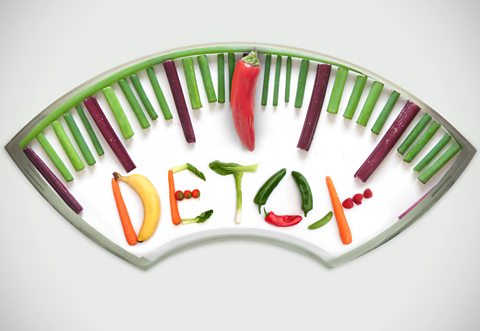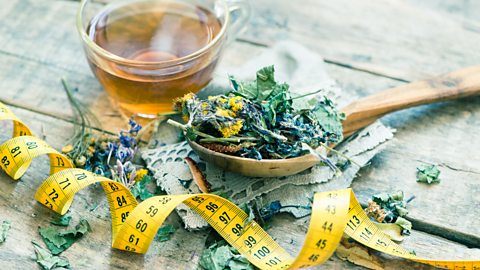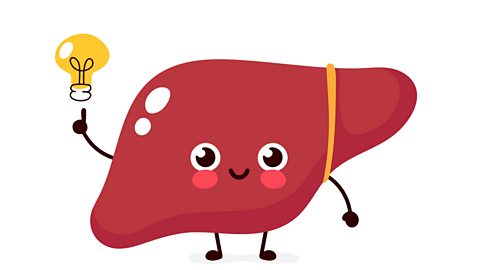ThereÔÇÖs a backlash against food detoxes and hereÔÇÖs why

Whether itÔÇÖs reducing screen time by going on a digital detox or cutting out alcohol for a period after overindulging, the word ÔÇÿdetoxÔÇÖ sounds like a positive, healthy action to take.
However, when it comes to food detoxes, do they have health benefits? We spoke to Nutritionist, Rhiannon Lambert and Nutrition Scientist, Dr Bernadette Moore about whether they are as ÔÇÿclean livingÔÇÖ as billed.
Why do we think food detoxing is healthy?
Detoxing involves cutting out your regular foods and drink and replacing them with a limited number of specific foods ÔÇô or even products ÔÇô on the basis you are giving your body a break and clearing out ÔÇÿtoxinsÔÇÖ.
When detox is paired with words like ÔÇÿgreenÔÇÖ, ÔÇÿcleansingÔÇÖ, ÔÇÿjuiceÔÇÖ, ÔÇÿflushingÔÇÖ, it can sound like it's doing your body good. But the problem is, say experts Lambert and Dr Moore, that while youÔÇÖre detoxing youÔÇÖre missing out on key nutrients that keep you healthy in the first place.
ÔÇ£People look at detoxing as something they can control. ItÔÇÖs a word that is actionable and they associate the word 'cleanse' with the feeling of it,ÔÇØ says Lambert. She adds: ÔÇ£The truth is, we donÔÇÖt need to cleanse or detox ourselves at all and following this sort of diet will not have this desired effect.
ÔÇ£The idea of feeling clean after a detox diet is what spurs dieters to embark repeatedly on expensive and immensely restrictive detox diets.ÔÇØ
Dr Moore explains: ÔÇ£In the world of nutritional science, there isn't such a thing as a detox dietÔÇØ, the reason being, they arenÔÇÖt seen as a healthy route to take.
These usually are short-term interventions where people typically might be fasting  with maybe supplements added and then, fruit and vegetables too. They're extreme dietary interventions but the notion that by fasting, we're going to get rid of toxins. It's not , says Dr Moore.
Rhiannon Lambert explains what "red flags" to look out for in detox products
Detoxing for weight loss? You may not have long-term success
A frequent reason people detox is because they see it as a potential way to lose weight, unfortunately, there is this leads to long-term weight-loss.
Dr Moore says: ÔÇ£When you fast, you're losing protein, vitamins, minerals and essential micronutrients. This means there's a damage to you in the short term because whenever we fast, we lose muscle as well as fat. People need to come back and eat again. So, any weight loss achieved is just for the short term.ÔÇØ
Lambert adds: ÔÇ£No amount of detox products will actually help you lose weight or reduce cellulite, for example. Cellulite is common, approximately of all women are affected by cellulite, it's perfectly normal and we don't need to make any changes.ÔÇØ
Related stories
Could there be health risks associated with detoxes?

ÔÇ£Over time, detox diets also give you a greater risk of nutrient deficiencies due to the dietary restrictions they impose. These restrictions may also leave you feeling deprived and probably hungry, which may lead to subsequent overeating,ÔÇØ says Lambert, author of the book, The Science of Nutrition.
With some detoxes expensive, Dr Moore adds: A lot of the trendier detoxes there are risks of nutrient deficiencies and wallet deficiencies!
There could be other problems with some products. Lambert explains: ÔÇ£Some products are simply laxatives in tea form. If the key ingredient is senna, thatÔÇÖs used to treat constipation. It irritates the stomach lining to stimulate bowel movements, and acts as a diuretic. Using senna can cause dehydration, cramps, and diarrhoea, and result in inadequate nutrient absorption, causing depletion of key minerals such as calcium, sodium, and potassium. can damage the gut lining and disrupt electrolyte balance, potentially causing heart damage.ÔÇØ
Dr Moore adds: ÔÇ£ThereÔÇÖs a very real risk that some of the supplements being sold have ingredients that arenÔÇÖt effective and, worst case scenario, they are actually damaging to you ÔÇô they are themselves toxins!ÔÇØ
Dr Moore says there are examples of when dangerous ÔÇô and even illegal ÔÇô ingredients have been found in so-called detox products. These arenÔÇÖt products youÔÇÖll find on the high street or from reputable sellers but from businesses which arenÔÇÖt regulated.
ÔÇ£We don't really track this in the UK, but in in the United States, the , keeps a record anytime there's a hospital incident or any case of a supplement that's marketed, having an ingredient that can itself be a toxin and dangerous.
ÔÇ£What you see is drug-induced liver damage. And in very acute cases this quite often comes from [illegal] weight loss potions. Thankfully, those cases are rare.
ÔÇ£I would say, 'buyer beware' to the more exotic mixes of chemicals,ÔÇØ says Dr Moore. Just as important, ensure the product itself is regulated and comes from a trusted source ÔÇô because even if the ingredient list does have all-legal ingredients, the amounts you consume could be dangerous if not regulated.
Dr Moore gives an example: ÔÇ£You can take a multivitamin-mineral supplement and it'll have a small amount of iron in it. But if your doctor thought you were iron-deficient, and you needed a big dose of iron, youÔÇÖd need a prescription. So, most vitamins and minerals are safe because the amount that we're allowed to sell you is limited. But if youÔÇÖre buying, say, herbal supplements from an unknown source on the internet, less is known, and the quality of ingredients can vary by manufacturer.
ÔÇ£If you've got to go to a dodgy web site, and if there's a lot of ingredients and it sounds too good to be true. It probably is.ÔÇØ
The good news? Your body is already detoxing. All the time.

Dr Moore is an Associate Professor of Obesity at the University of Leeds and has carried out extensive research on the liver. She explains that our liver, together with our kidneys, effectively detox everything for us. They metabolise everything we consume and then excrete what we donÔÇÖt need.
ÔÇ£To be healthy is to eat protein, carbohydrates, healthy fats, and vitamins and minerals and micronutrients. It all gets metabolised and what we don't need, should be excreted. Your liver and kidneys work all the time. You don't need to go on a detox diet to get rid of toxins.ÔÇØ
So how can we keep our liver and kidneys working well?
ÔÇ£What we need is a healthy diet. The best thing you can do for your liver is not drink alcohol and not eat too much fat,ÔÇØ says Dr Moore.
She finishes: If youre making goals to lead a healthier lifestyle, and reducing processed foods, alcohol, caffeine and things that we know are not good for ourselves, thats one thing I'd support But the notion that by fasting, we're going to get rid of toxins. It's just not scientifically accurate.
Published January 2022.